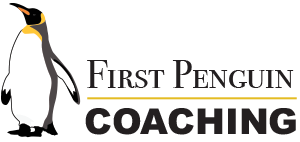 A colleague and I who share a skillset in sales were recently lamenting how we both hate cold calling – despite the fact that we’re both good at it. She referred to this activity as soul sucking. 😂 We agreed that cold calling sucks the most when NOT combined with skills that are more fulfilling. The discussion went on to a broader conversation about skills. Most professionals are proficient at many skills especially as they advance in their career. The question then becomes – which skills do you enjoy using most? Also, how do you determine your preferred skills?
A colleague and I who share a skillset in sales were recently lamenting how we both hate cold calling – despite the fact that we’re both good at it. She referred to this activity as soul sucking. 😂 We agreed that cold calling sucks the most when NOT combined with skills that are more fulfilling. The discussion went on to a broader conversation about skills. Most professionals are proficient at many skills especially as they advance in their career. The question then becomes – which skills do you enjoy using most? Also, how do you determine your preferred skills?
Here are six ways to identify the skills you want to use most in your current or next role.
- Reflect on your current role and past roles including both paid and volunteer work. What do you or did you enjoy doing most? Which tasks or projects felt like time was flying because you were so engaged in the work? What skills were you using or roles were you performing when you felt most energized?
- Consider both your soft skills as well as hard skills. Soft skills include things such as communication, collaboration, leadership, teamwork, organization, or critical thinking. Hard skills are specific competencies that are required to complete a certain job. These include skills such as analytical, computer related, foreign languages, writing, budgeting, and technical. Also, give thought to your transferable skills. These can include both soft and hard and can be incorporated into a variety of roles and work environments.
- Take a skills assessment. A vendor shared with me that there are 1,100 total assessments on the market! The value in taking an assessment is having an objective outsider read it with you. I use a tool with clients called SkillScan. It is intuitive and based on the individual’s current perception of their skills. When we review results together, I ask questions to check for accuracy and alignment with other work that we are doing. Sometimes, clients don’t score their skills accurately. One client inflated his skill numbers because they were areas he wanted to grow and develop. Another client underscored certain skills because he was struggling with confidence in his abilities due to a recent layoff. Providing objective feedback helps my clients determine which skills they prefer to use most in their next role.
- Ask for feedback about your top skills. This could include your current leader, peers, clients, vendors, or colleagues. Refer to past performance reviews or peer assessments for data points. Think about your close friends and family members. What advice or counsel do they seek from you? Which activities come naturally to you? If you have LinkedIn recommendations, read these to see strong skills that others notice in you. I spoke with a theater professional trying to pivot during the pandemic and helped her identify transferable skills by reading her LinkedIn recommendations!
- Identify gaps in skillsets. If there’s a skill you enjoy using and want to increase your proficiency, find ways to develop it. Upskilling opportunities include online courses or certification programs. If employed, let your leader know your interests and ask for feedback on how to improve a certain skill. Offer to take on projects that allow you to gain experience in a certain area. Another way to use a desired skill is to volunteer. Consider board or committee roles with professional associations in your industry. In addition to practicing this skill, you’ll gain exposure and build relationships with like-minded colleagues.
- Incorporate your top skills into your personal branding. For job searchers, this includes your LinkedIn profile and resume as well as your networking and interview conversations. Be sure to highlight the skills that are required for the job. Again, we may be good at many skills, but the hiring manager cares most about which skills are relevant to the role for which you are applying. For employed individuals, ask curious questions about your organization and discover where you can leverage your preferred skills. Displaying this skill within your organization may enhance your visibility and open doors for future opportunities.
If you would like to explore how coaching can help you or your organization determine skill preferences, please reach out to schedule a conversation: gina@firstpenguincoaching.com
